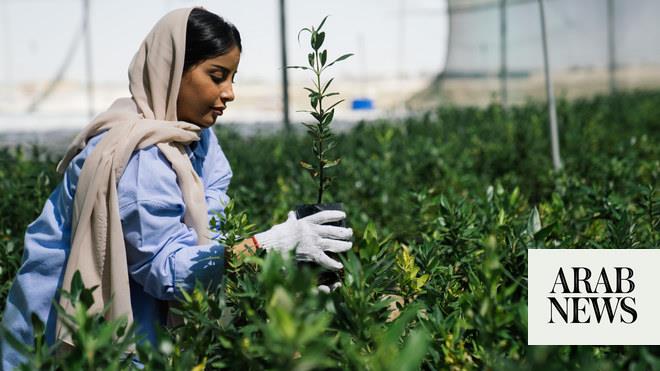
The UN-mandated Sustainable Development Goals (SDGs), otherwise known as the Global Goals, are a universal call to action to end poverty, protect the planet and ensure that all people enjoy peace and prosperity. The 17 goals build on the successes of the UN Development Programme’s Millennium Development Goals, while including critical policy areas such as climate change, economic inequality, innovation, sustainable consumption, and peace and justice, among other priorities. As the SDGs apply to Saudi Arabia’s worldview, the results are unique and positive, especially when looking at health policy.
Narratives and hard data published by the UN concerning women’s issues are important in the context of the SDGs. On a global scale, data suggests that gender inequality is diminishing, yet problems abound. While some forms of discrimination against women and girls are being reduced, gender inequality continues to hold women back and deprives them of basic rights and opportunities. Empowering women requires addressing structural issues, such as unfair social norms and attitudes, as well as developing progressive legal frameworks that promote equality between women and men. Based on data gathered between 2000 and 2016 from about 90 countries, women spend roughly three times as many hours in unpaid domestic and care work as men. Saudi Arabia has already passed laws concerning equality between men and women, the mixing of genders in and beyond the workplace, and making harassment at work a reportable and punishable offense. All these changes in the Kingdom have occurred in the past two years.
Most importantly, health is a determinant for many factors related to the SDGs from the Kingdom’s perspective. Many more people today are living healthier lives than in the past decade. Nevertheless, people are still suffering needlessly from preventable diseases, and too many are dying prematurely. Overcoming disease and ill health requires concerted and sustained efforts, focusing on population groups and regions that have been neglected. That fact is true in almost any country, especially given various levels of low-level health care in rural areas. For Saudi Arabia, advancing medical attention and treatment that adheres to cultural norms is an important factor that helps build up local confidence and, most importantly, trust.
There appears to be an emerging equity in Saudi Arabia seeing that health is traceable to every aspect of the SDG goals. Good health is a foundation upon which to build a vibrant socioeconomic structure in areas long neglected by government due to a variety of lawful and illicit factors. Importantly, perspective is key: A healthy society isn’t one that waits for people to become ill, but rather a proactive one that sees how health is shaped by social, cultural, political, economic, commercial and environmental factors, and takes action on these for current and future generations.
Women in governance is another necessary and positive factor in addressing issues of inequality and health. Globally, the percentage of women in single or lower houses of national parliament has increased from 19 in 2010 to about 23 in 2018. Based on the SDGs, it is clear that women in government help promote a way to bring women’s and children’s health and safety issues forward as part of good governance. Saudi Arabia mandates by law that the Shoura Council must have 20 percent female representation — a statistic not found elsewhere in the world.
There appears to be an emerging equity in Saudi Arabia seeing that health is traceable to every aspect of the SDG goals
Dr. Theodore Karasik
More needs to be done in this sphere given the global statistics regarding the plight of women in terms of the SDGs. UN data from 2005-2016 from 56 countries showed that 20 percent of adolescent girls aged 15 to 19 who have ever been in a sexual relationship experienced physical and/or sexual violence by an intimate partner in the 12 months prior to the survey.
Globally, in 2017, an estimated 21 percent of women aged between 20 and 24 reported that they were married or in an informal union before age 18. This means that an estimated 650 million girls and women today were married in childhood. However, the rates of child marriage have continued to decline around the world. In Southern Asia, a girl’s risk of marrying in childhood has dropped by over 40 percent since around 2000. These statistics are a positive step forward.
Finally, the global community and regional countries must all push for the end of female genital mutilation (FGM). In 2017, one in three girls aged 15 to 19 had been subjected to FGM in the 30 countries where the practice is concentrated, compared to nearly one in two at the turn of the century. The practice of FGM requires acute attention by the international community, specifically through organizations and efforts on the ground in areas where it occurs.
In Saudi Arabia, especially among health care practitioners and those who see humanitarian aid requirements through the UN’s eyes, there is a clear recognition and drive toward partnering on these issues. There is clearly a requirement for health and multi-sector interventions that focus on how to survive, thrive and transform the environment in order to achieve acceptable SDG levels. The first stage is the most important in terms of guaranteeing outcomes to create more productive individuals based on equality. These three drivers help set the future health agenda and goals in terms of the importance of investing in promoting health and training programs for professionals and practitioners to help those most affected by social inequality, namely women and children.
For many years, stakeholders in the health community have been advocating for a health-in-all-policies approach or a systemic approach. However, the SDG framework provides an excellent opportunity to go beyond current practices and embed a comprehensive, inter-sectoral approach in national policymaking. It also provides the opportunity to show that good health has a role to play in supporting sustainable development more broadly.
Overall, bold actions are being taken by many countries, including Saudi Arabia, to achieve SDG targets, especially in the areas of health and health care maintenance. Given that women and children are the future, the SDGs are a vision we must all embrace.
Dr. Theodore Karasik is a non-resident senior fellow at the Lexington Institute and a national security expert, specializing in Europe, Eurasia and the Middle East. He worked for the RAND Corporation and publishes widely in the US and international media. Twitter: @tkarasik
Disclaimer: Views expressed by writers in this section are their own and do not necessarily reflect Arab News" point-of-view












